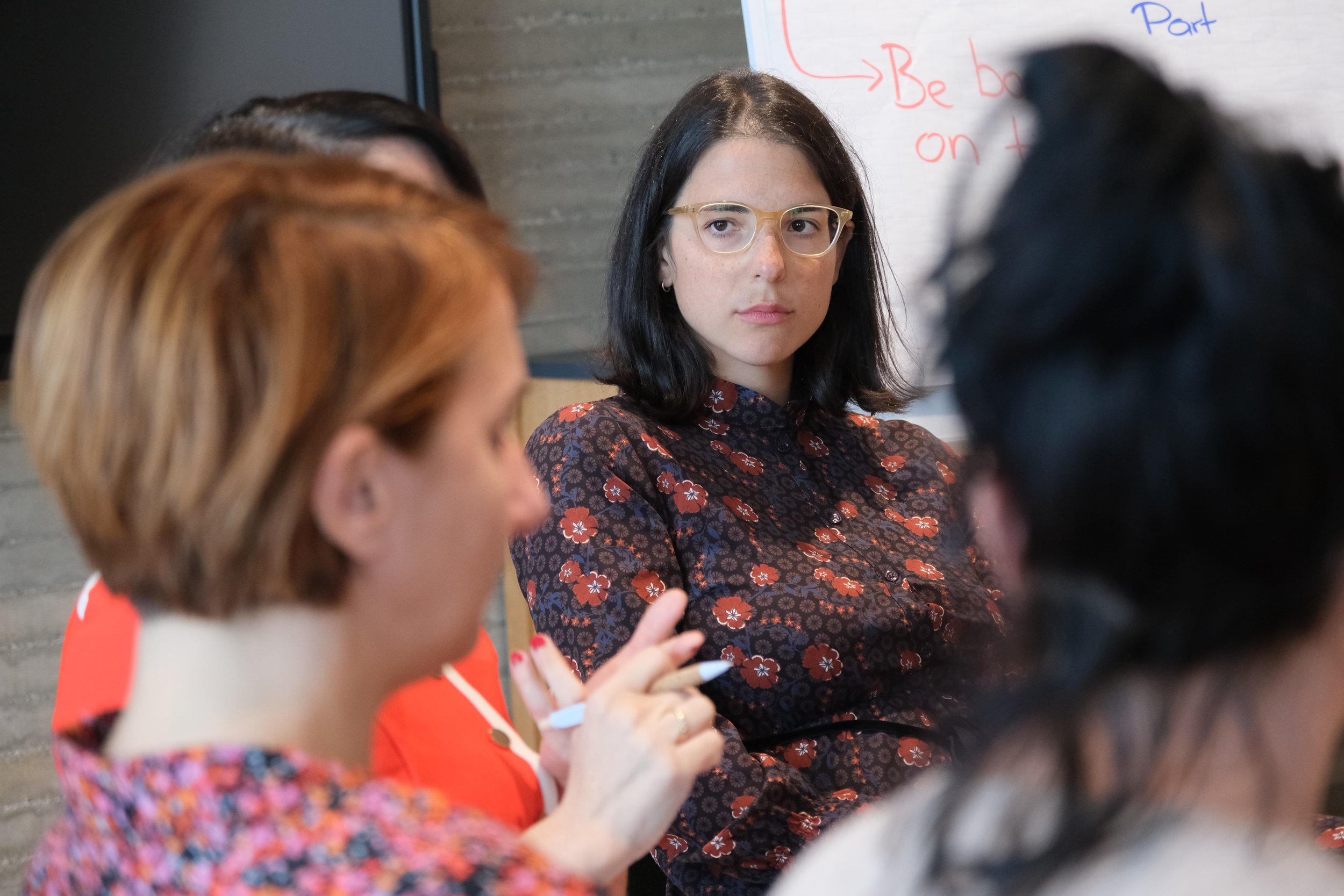With a focus on the Middle East and North Africa, Kelly Petillo has been committed to stepping up European action around key foreign policy issues such as protecting refugees, humanitarian and human rights issues. In her work, Kelly has researched and published work on the situation of Ukrainian, Syrian, and Palestinian refugees and their rights in various countries. Kelly continues to advocate for a coherent European approach to Syrian refugees through her work at the European Council on Foreign Relations, calling for European support to refugees in host countries that is more adapted to the local contexts and led by civil society, including refugee-led organizations.
Never have I ever
I have been reflecting on my decision to move towards researching and advocating for refugee rights while being part of a think tank that works more on geopolitics and so-called ‘hard security’ topics, such as defense. I had to come up with my own strategy, my own messages, and my own network and tap into a slightly different set of stakeholders than the ones we traditionally work with. I have seen it done so many times, but I found it really hard to find the right people and build alliances across the political spectrum to reflect on existing nuances. The Women’s Peace Leadership Programme (WPLP) really spoke to me - largely due to its focus on networking. But even coming here was very uncomfortable. I thought, what if I am not good enough? Now I see that imposter syndrome affects us all.
One of the projects we run at the think tank brings together women activists and peacebuilders from Yemen and Iraq. For that, I had to find participant candidates, interview them and make decisions on whom to enlist. Doing something you have never done before is hard, but then I look back and I see how I went through with it and it worked. This is the most rewarding feeling.
In a position to learn
The fact that I am not coming from the geographic area I work on sometimes still makes me feel like I can offer less than others. I truly believe in working at the grassroots level, but I also believe the value of my work is at a policy level – in Brussels, European capitals and beyond.
I’m learning so much from the others in the programme, even simply by talking to my fellow participants. Observing how others within the group approach similar issues made me realize that in my day-to-day work, I would sometimes push for something that is actually not important at all for my overall career or wellbeing. Being able to compare experiences with these wonderful women peacebuilders has been really grounding
Values that matter
For me, making sure that the way I do my work and that my work in and of itself speaks to a higher purpose and doesn’t get compromised along the way is really important.
I also believe that empathy is a critical component of advocacy work. Part of that means trying to get into the minds of those you seek to influence and understand how they operate. But it’s also about empathy towards those affected by the policies we work on, like someone who may be affected by conflict. And then, finally, also being empathetic in my workplace and at home: trying to find out what can I do to better understand those around me.
To me leadership is finding strength in other people and in myself and leveraging that strength.
I imagine that some men in my field may approach working on these issues very differently than me, perhaps with more confidence – assuming they already know much more than I do. In my work, I always got the feeling that men are more self-assured and this may result in them having better access to these spaces. They would come to the table thinking ‘I got this, I’m doing this’. They wouldn’t put much effort and time towards self-reflection. I don’t know whether this conversation would be happening if I was a man.
Kelly is one of the 12 mentees from around the OSCE area and Afghanistan, participating in the OSCE Women’s Peace Leadership Programme 2022-2023, an initiative of the OSCE Secretary General Helga Maria Schmid. The Programme aims to strengthen the ability of women to meaningfully engage and influence peace processes at all levels. It is a part of the OSCE’s flagship project WIN for Women and Men, which covers the Networking platform for Women Leaders including Peacebuilders and Mediators. The WIN Project works with OSCE-supported networks and gives rise to new networks, fostering women’s participation and leadership, as well as broader men’s engagement in achieving gender equality.



